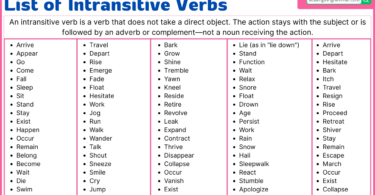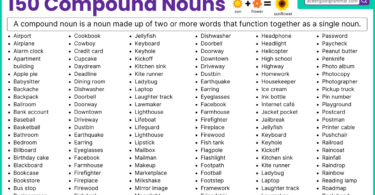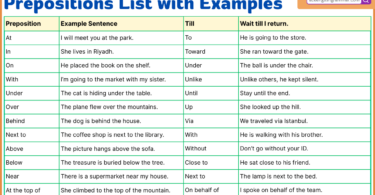Table of Contents
24 Main Auxiliary Verbs List in English
- am
- is
- are
- was
- were
- be
- being
- been
- have
- has
- had
- do
- does
- did
- can
- could
- shall
- should
- will
- would
- may
- might
- must
- ought to
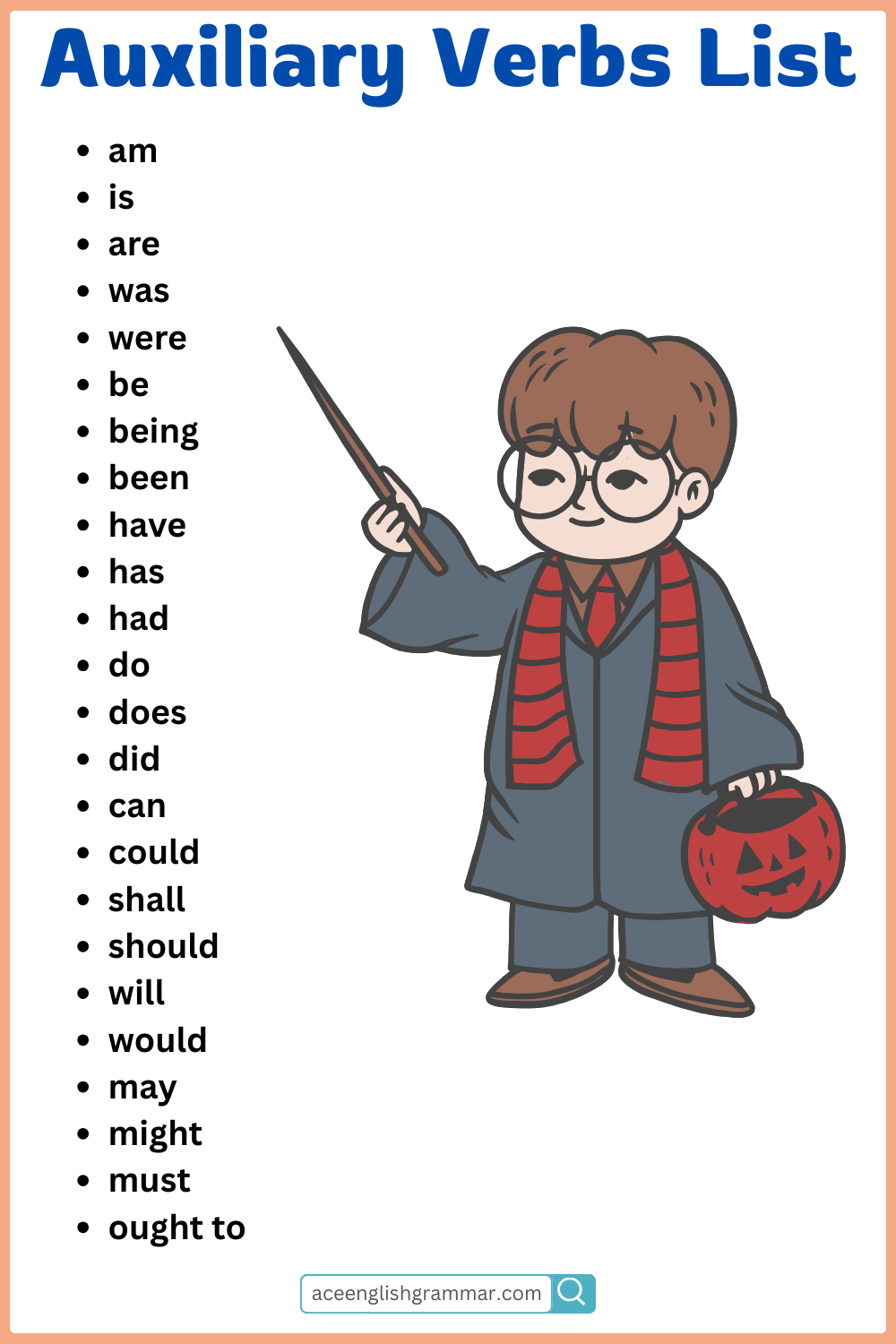
Primary Auxiliary Verbs List with Examples
| Auxiliary Verb | Example Sentence |
|---|---|
| am | I am reading the Quran. |
| is | She is learning Arabic. |
| are | They are studying grammar. |
| was | Ahmad was reciting Surah Yaseen. |
| were | We were discussing Hadith. |
| be | He wants to be a teacher. |
| being | She is being honest. |
| been | I have been to Makkah. |
| have | I have memorized five surahs. |
| has | Fatimah has completed her homework. |
| had | They had finished before sunset. |
| do | I do pray on time. |
| does | She does help her siblings. |
| did | Yusuf did learn all the tenses. |
Modal Auxiliary Verbs List
- can
- could
- may
- might
- shall
- should
- will
- would
- must
- ought to
Auxiliary Verbs in Different Tenses with Examples
| Tense Type | Auxiliary Verb(s) Used | Example Sentence |
|---|---|---|
| Present Simple | do / does | Does Amina speak English? |
| Past Simple | did | Did you go to the masjid? |
| Present Perfect | have / has | I have completed the homework. |
| Past Perfect | had | She had left before Fajr. |
| Future Simple | will | They will join us later. |
| Future Perfect | will have | We will have arrived by then. |
| Present Continuous | am / is / are | He is writing a story. |
| Past Continuous | was / were | They were reading books. |
| Future Continuous | will be | I will be teaching tomorrow. |
| Passive Voice | be / is / was / were / been | The book was written by Hassan. |
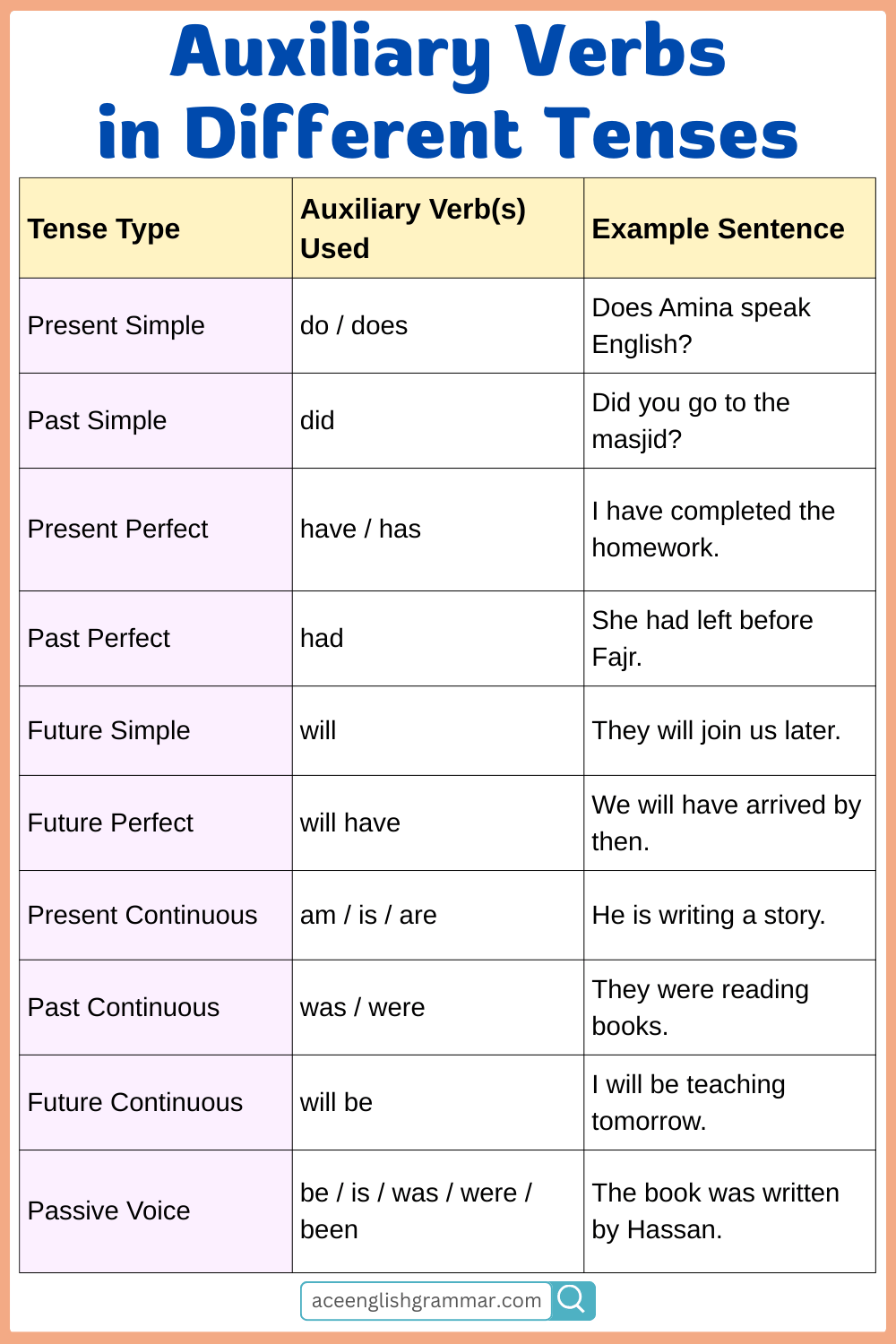
Auxiliary vs. Main Verbs
| Auxiliary Verbs | Main Verbs |
|---|---|
| Also called helping verbs. They support the main verb to show tense, mood, or voice. | Show the main action or state of being in a sentence. |
| Examples: is, am, are, was, were, have, has, do, does, can, will, should. | Examples: eat, read, run, sing, sleep, write. |
| Cannot stand alone; they always work with a main verb. | Can stand alone and complete the meaning by themselves. |
| Example: She is writing a letter. | Example: She writes letters every day. |
| Used to form questions, negatives, passive voice, and perfect tenses. | Express the main idea or action of the subject. |
| Common mistake: Using an auxiliary verb alone without a main verb. | Common mistake: Forgetting to add an auxiliary verb when needed for tense or question. |
Auxiliary Verbs in Sentences
Here are some useful sentence examples using auxiliary verbs in real contexts:
- I am going to the masjid.
- She is preparing for her exam.
- They have completed the assignment.
- You should recite daily.
- He was reading the Quran.
- Malaika has memorized Surah Al-Mulk.
- We were planning a group study.
- I will help you with grammar.
- She might join later.
- Areeba must complete the task by Maghrib.
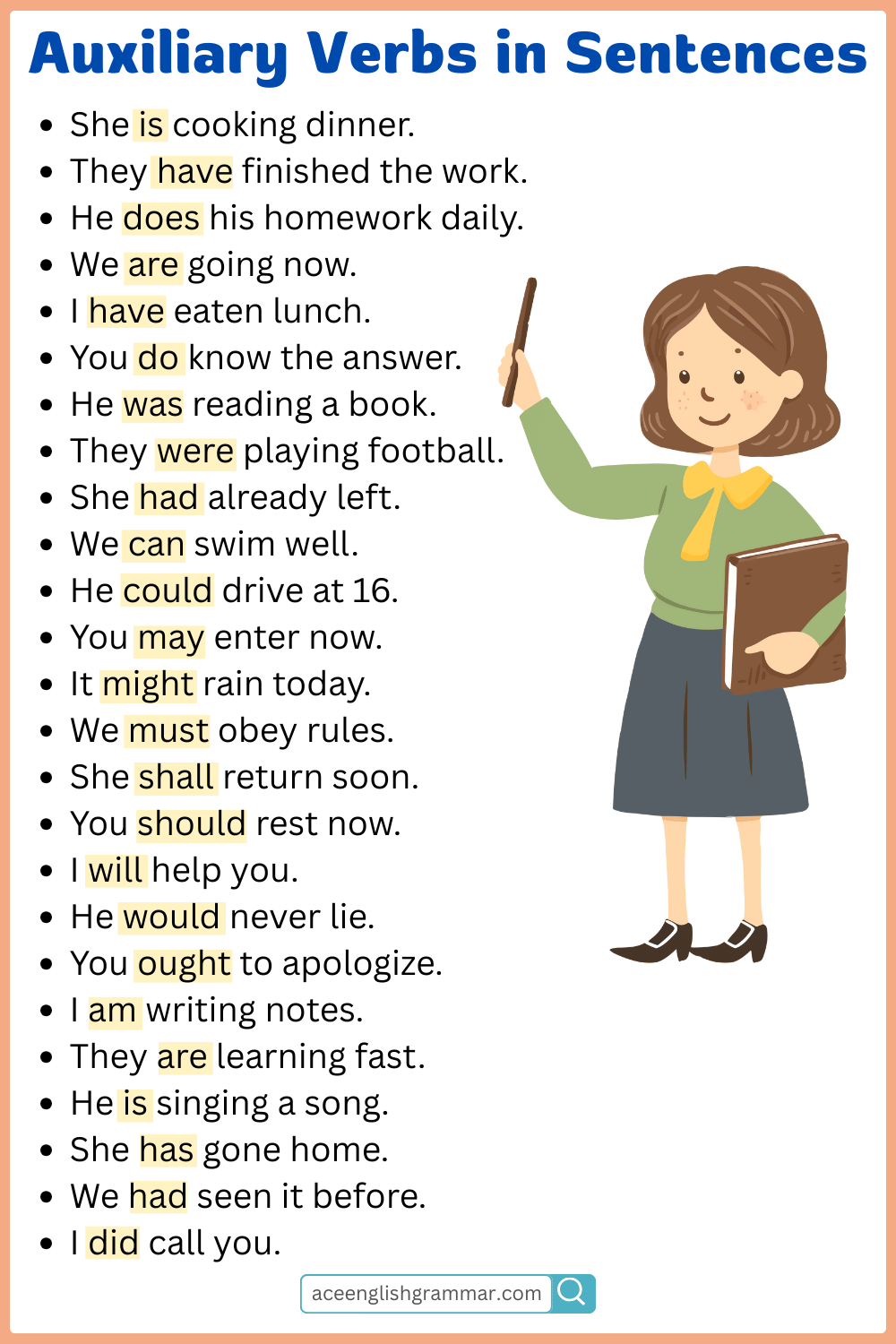
FAQs
Auxiliary verbs help form tenses, questions, and passive voice in English.
Be, Do, and Have.
Yes, modal verbs are a type of auxiliary verb used for mood and intention.
No, they support a main verb and cannot stand alone in most cases.
There are 24 main auxiliary verbs, including primary and modal verbs.
You might also like

